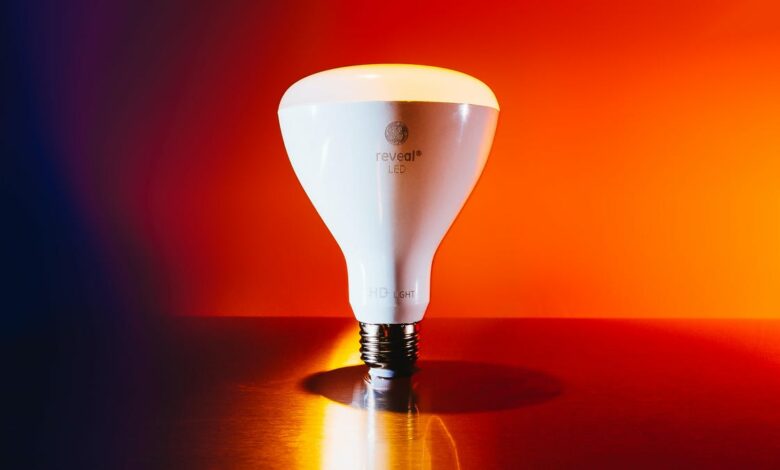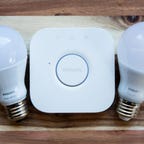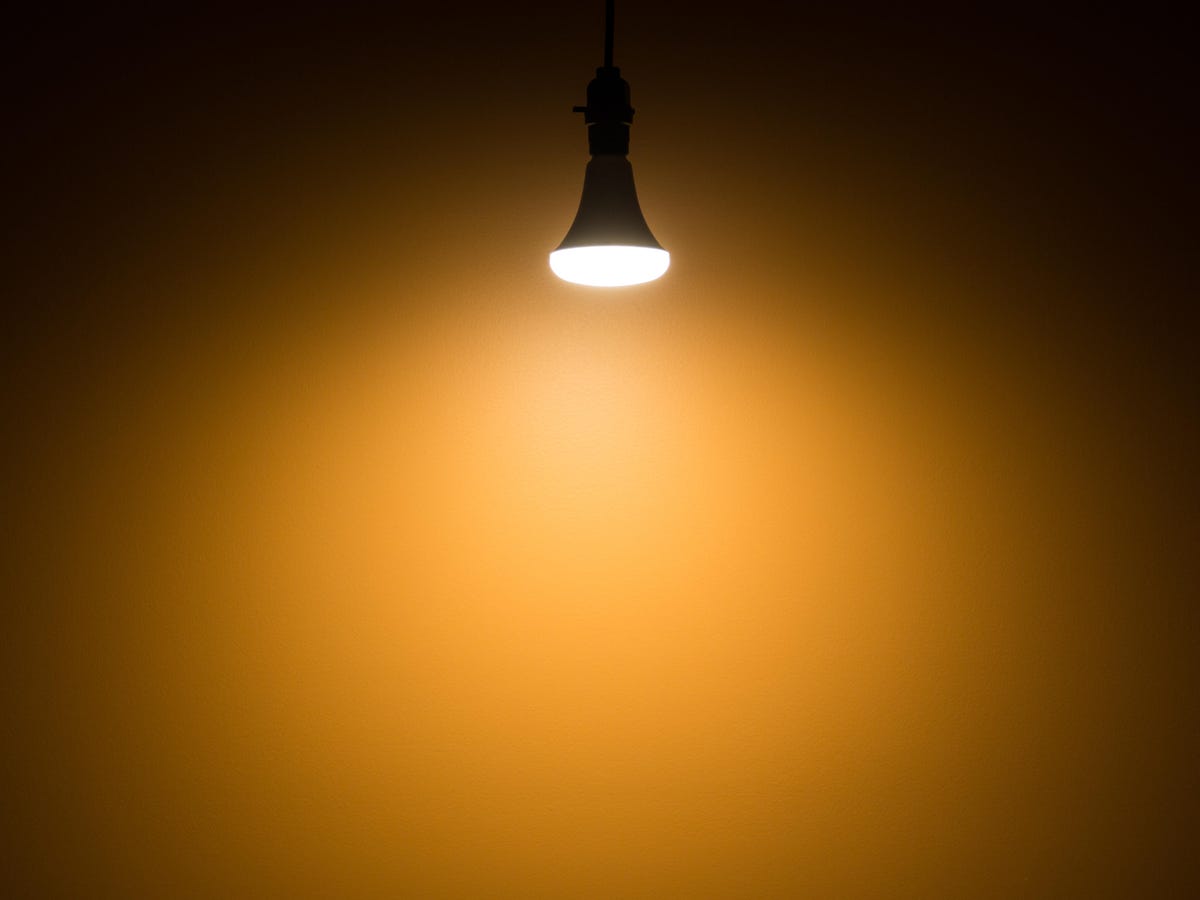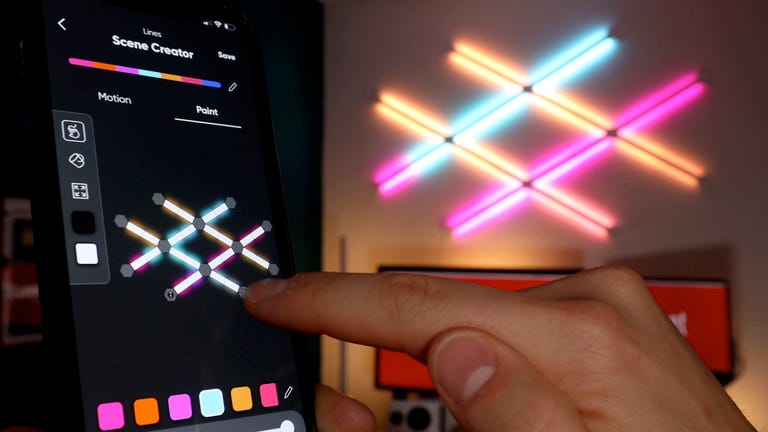Best LED Light Bulb For Every Room In Your Home In 2024







You’ve probably seen those Instagram and TikTok videos where the aesthetic of a room can completely change with just the flip of a switch. It’s true: lighting can have a huge impact on the way our homes look and feel. Having the right LED bulb for every area of your home is important for setting the right tone. You can brighten up a room with vibrant lighting or even some fun, colorful LED bulbs. Or, you can create a calming environment with dimmed lighting structures. There are versatile LED bulbs to choose from that can fit into any room in your home. Plus, an LED bulb can help you save on your energy bills and electricity.
With a flood of new energy-efficient LED bulbs hitting the lighting aisle, you have more LED lighting options than ever. But how do you choose the best LED bulbs for the job? The trick is to think long and hard about how you typically use light in the different rooms in your home. That, more than anything else, will determine your lighting needs. For example, you might benefit from a super-bright bulb in your favorite reading lamp, but prefer a softer, more candle-like glow from the lamp next to your bed.
For that reason, here are some room-specific tips to help you find the right LED bulb for your lights and living space. Where applicable, I’ve also included links to buy bulbs from our tests. I’ll update this as I test new products.

If you have high ceilings, you want spotlights that shine a nice bright light in one direction.
Lots of height? Make it super light
If you have rooms with high ceilings or recessed lighting—an entryway, for example, or perhaps a staircase with skylights or a chandelier above—you’ll want to prioritize brightness over softness in your bulbs. The higher your bulbs hang, the brighter they’ll need to be to illuminate the room.
The most common overhead lighting products are BR30-style floodlights. The “BR” stands for “bulging reflector” and means that the light inside the bulb sits above a reflective bowl, sort of like a small satellite dish. You screw one of these into your ceiling and that bowl catches all the light thrown up, then reflects it back down and out through the base, which bulges outward to produce the widest possible pool of bright light in the room. It’s the same trick your car’s headlights use to produce as much light output as possible for you as you drive.
You have plenty of energy-saving BR30-shaped LED options on the lighting aisle. The most common choice is the 65-watt replacement bulbs, which typically put out about 650 lumens each. That’s a good, mid-range number and fine for average-height ceilings with at least a few lights shining overhead. Of the bulbs I tested, the 65-watt replacement floodlights from Cree and Philips are the two I’d recommend. They’re good values and very energy efficient for the money (each uses less than 10 watts). These dimmable bulbs also work well with dimmers and — most importantly for overhead lighting — they’re both nice and bright, each comfortably putting out over 700 lumens. As of this writing, Home Depot has those Cree bulbs on sale in a two-pack for less than $6 each — these are the ones I would buy if I were to buy them myself.
If your ceilings are higher than average, or you have fewer lights shining overhead than you’d like, look into 100-watt replacement BR30 LEDs that will boost the brightness even further. Cree makes them, and Home Depot sells them for only about $10 eachwhich is a very good deal.

Check this out: The Coolest Alternative Smart Lighting Fixtures
Dimmability means versatility for your living room and bedroom
Some rooms have just one or two basic functions, but other rooms are used in a variety of ways. For example, you might use your living room to watch TV, read books, play board games with the kids, or do other activities. These rooms can really benefit from quality lighting that can adapt to what’s happening.
The old-fashioned way to do it is to use a mix of different bulbs and fixtures that serve different purposes — a reading lamp next to your favorite armchair, overhead lights for board game night, everything off when you’re watching a movie, and so on. That’s all well and good, but it limits you to a binary, “on/off” lighting mentality.
The better approach? Give yourself a full spectrum of lighting possibilities by making sure all those bulbs are dimmable.
Upgrading your light switches to dimmers is one way to do this (and not nearly as daunting as you might think if you’ve never replaced one before). There are also smart plugs from brands like Lutron that let you dim your fixtures and lamps up and down. The easiest way, however, is to replace your incandescent bulbs with dimmable smart bulbs. Now is a great time to do this: Costs have come down dramatically in recent years, and the advent of voice control has given people a quick, easy way to jump to the dimmer setting they want, whenever they want.
Best of all, virtually every smart bulb on the market is dimmable without flickering or buzzing, eliminating a common problem with built-in dimmers. That also makes smart bulbs good choices for bedrooms, where strong dimming performance and things like pre-scheduled wake-up times can do wonders for your mood in the morning.
Philips Hue has a reputation for being expensive, but its dimmable white LED smart bulbs are just $15 each, and you can get a starter kit that includes three bulbs and the Philips Hue Bridge that acts as the brains of the system for just $50. From there, you can pick up additional bulbs when they go on sale, gradually expanding your network of connected bulbs over time.
We like the Philips Hue smart light bulb for its well-developed app, the wide variety of bulbs, fixtures, and accessories you can add to your setup, and the solid track record of support. With the Hue Bridge calling the shots, your lights work with Siri, Alexa, and the Google Assistant for quick, voice-controlled lighting changes. The next time you’re watching a movie and want to dim the lights—but not turn them off all the way—you can simply tell your assistant to, “dim the living room lights to 5%.”
On the left, a bowl of M&M’s lit by a standard GE LED. On the right, the same bowl lit by a GE Reveal LED, which makes colors much more vibrant and realistic.
Think about colors in your kitchen and your cabinets
I’m not talking about smart light bulbs that change colors (although if you want to brighten up your home with them, don’t let me stop you). No, I’m talking about the colors you already have in your home: artwork, furniture, the clothes in your closet, the fruits and vegetables in your kitchen, you name it.
Whatever it is, if it’s colorful, it benefits from bulbs with high color rendering ratings — bulbs that boost color temperature and make colors look their best. These aren’t always the easiest things to buy, since manufacturers aren’t required to list their color rendering ratings on the packaging like they are with brightness and efficiency ratings. Some bulbs that claim to produce great colors actually do a poor job.
My LED lighting tip: Just stick with GE Reveal bulbs, because in about six years of reviewing incandescent bulbs for CNET, I haven’t tested one that didn’t deliver what it promised: better colors. That includes standard 60-watt replacement LEDs, floodlights, weird-looking stick-shaped LEDs, dimmable LED bulbs and more. A four-pack of regular, A-shaped Reveal bulbs (linked below) is currently $14 at Lowe’s.
They typically cost a little more per bulb and are usually a little dimmer than your average LED bulb, as they filter out some of the excess yellow light for a better color temperature. But the tradeoffs are worth it if you’re using them for accent lighting or to illuminate areas of your home where you can enjoy accurate, more beautiful colors day in and day out.
And that’s the thing — despite how often we take them for granted, we use light bulbs more than anything else in our homes. They’re often the first things we turn on in the morning and the last things we turn off before we go to bed. So don’t let the lighting aisle overwhelm you — whether you opt for an energy-saving bulb, a CFL, a smart LED, or even an incandescent bulb, finding the right bulb for every room in your home is worth the effort and a lot easier than you might think.








